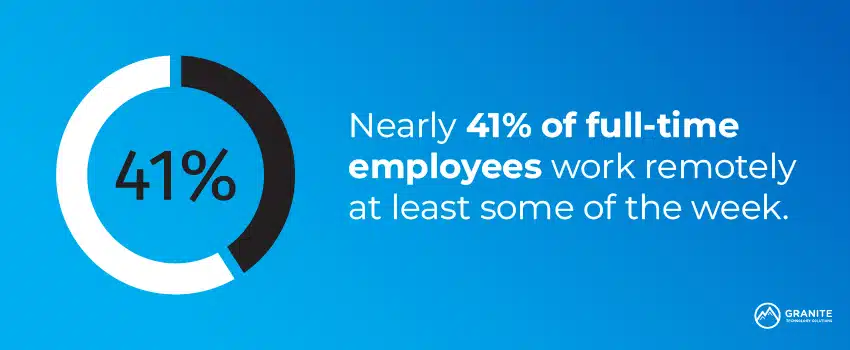In today’s fast-moving business world, good communication is key to success. Many businesses are now turning to PBX VoIP systems to improve how they communicate. This technology offers a simple, cost-effective, and feature-packed alternative to traditional phone systems. In this blog, we’ll explain what PBX VoIP is, how it works, and why it’s beneficial for modern businesses.
What is PBX VoIP?
PBX VoIP combines two important communication tools: Private Branch Exchange (PBX) and Voice over Internet Protocol (VoIP).
- PBX is a private phone network used within a business. It lets employees communicate internally and externally with features like call forwarding, voicemail, and conference calls. Traditional PBX systems used analog phone lines and required a lot of hardware and maintenance.
- VoIP allows voice calls to be made over the internet instead of traditional phone lines. By combining VoIP with PBX, businesses can use the internet to make calls while still enjoying the advanced features of a PBX system.
With PBX VoIP, voice data is turned into digital packets and sent over the internet, which means high-quality calls without needing traditional phone lines. This setup helps businesses save money, reduce hardware needs, and improve their communication.
How Does PBX VoIP Work?
Here’s a simple explanation of how PBX VoIP works:
- Making a Call: When you make a call, the VoIP system converts your voice into digital data packets.
- Sending Data: These packets are sent over the internet to the recipient’s phone or VoIP system.
- Call Routing: The PBX system manages where the call goes, whether it’s an internal extension or an external number. It also handles features like call forwarding and voicemail.
- Receiving the Call: On the other end, the digital packets are converted back into sound, allowing the person you called to hear you.
This process happens almost instantly, so the conversation feels natural and uninterrupted.
The Benefits of PBX VoIP for Businesses
PBX VoIP offers several benefits that make it a great choice for businesses:
- Cost Savings:
PBX VoIP can save businesses money by reducing the need for traditional phone lines. Calls, especially long-distance and international ones, are often cheaper over VoIP. - Flexibility and Growth:
PBX VoIP systems can easily grow with your business. You can add or remove users as needed, making it a great option for businesses of all sizes. Since it’s cloud-based, your team can work from anywhere with an internet connection. - Advanced Features:
PBX VoIP systems come with many useful features like call forwarding, voicemail to email, video conferencing, and automated menus. These features usually come at no extra cost, making them more valuable than traditional PBX systems. - Better Call Quality:
Thanks to improvements in internet speed and VoIP technology, PBX VoIP often provides better call quality than traditional phone lines. With the right setup, you can have clear, reliable voice communication. - Unified Communication:
PBX VoIP can integrate with other tools like email, messaging, and video calls, making communication more streamlined and efficient. - Easy Management:
Managing a PBX VoIP system is easier than traditional phone systems. Many providers offer user-friendly dashboards for settings, user management, and usage monitoring. Plus, because it’s cloud-based, updates and maintenance are handled by the provider, so you don’t need to worry about it.
Why PBX VoIP is the Future of Business Communication
As businesses continue to adapt to digital changes, PBX VoIP is becoming the go-to solution for business communication. It combines the reliability of traditional phone systems with the flexibility and cost savings of VoIP, making it perfect for modern businesses.
Whether you’re a small business looking to cut costs or a large company needing better communication tools, PBX VoIP offers the features and flexibility you need to stay competitive.
Choosing the Right PBX VoIP Provider
When picking a PBX VoIP provider, consider things like call quality, reliability, customer support, and the features they offer. Make sure the provider you choose can grow with your business and integrate with your current communication tools.
By choosing the right provider, you can unlock the full potential of PBX VoIP and improve your business communication.
Conclusion
PBX VoIP is changing the way businesses communicate by offering a simple, cost-effective, and feature-rich alternative to traditional phone systems. By using the internet for calls, PBX VoIP systems help businesses save money, improve communication, and support remote work.
As more businesses move to cloud-based communication, PBX VoIP is becoming the standard for modern communication. Whether you’re looking to cut costs, improve call quality, or enable remote work, PBX VoIP is a solution worth exploring.
See Also: Exploring PBX VoIP
FAQs:
1. What is PBX VoIP, and how does it work?
Answer: PBX VoIP combines traditional PBX phone systems with VoIP technology, allowing businesses to make voice calls over the internet. It offers features like call forwarding, voicemail, and conference calling, all while reducing costs and improving flexibility.
2. Can PBX VoIP improve call quality?
Answer: Yes, PBX VoIP can offer excellent call quality, often better than traditional phone lines. With a good internet connection, you can enjoy clear and reliable voice communication.
3. What are the benefits of switching to a PBX VoIP system?
Answer: Benefits of PBX VoIP include saving money, easy scalability, advanced communication features, better call quality, and the ability to support remote work. It also integrates well with other communication tools, making it a great choice for businesses.

